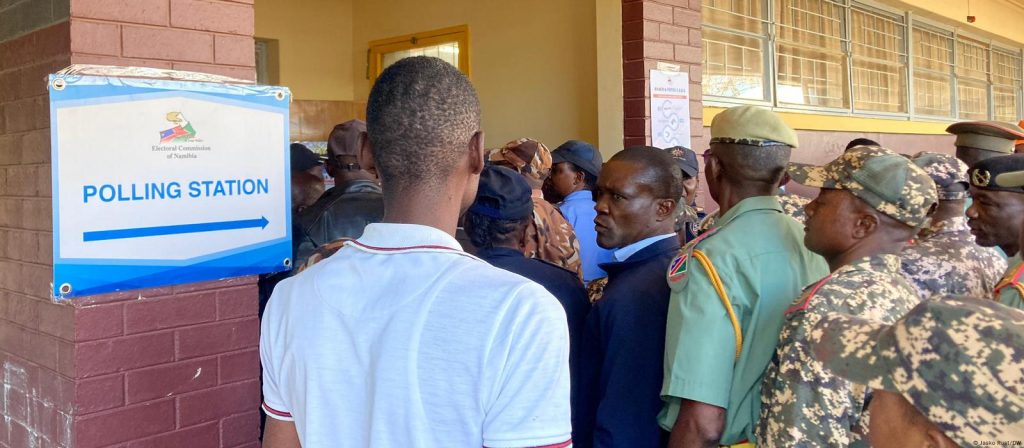Namibians head to the polls on Wednesday in an election that could make Vice President Netumbo Nandi-Ndaitwah the first female leader of Namibia. However, her party, the South West Africa People’s Organisation (SWAPO), is facing its toughest challenge to its 34-year dominance.
Nandi-Ndaitwah, 72, cast her vote in the capital, Windhoek, as polling stations opened at 7:00 am (0500 GMT). Speaking to voters, she emphasised the significance of the election: “(This vote) will have an impact for the next five years in your life and in the life of every Namibian and any person who’s visiting this country.”
SWAPO has ruled the resource-rich country since its independence in 1990. However, high unemployment and enduring inequalities have eroded its popularity. Analysts predict that Nandi-Ndaitwah may face a second-round run-off if she fails to secure at least 50% of the vote.
Nandi-Ndaitwah faces competition from four main challengers, including Panduleni Itula, 67, leader of the Independent Patriots for Change. A former dentist and lawyer, Itula gained 29% of the vote in the 2019 election, a significant challenge to then-SWAPO leader Hage Geingob, who won with 56%.

Geingob’s earlier success in 2014, when he claimed 87% of the vote, highlights the growing discontent among Namibians. Experts, including Henning Melber of the Nordic Africa Institute, suggest this election could lead to Namibia’s first-ever run-off, which would take place within 60 days if required.
Despite being a major exporter of uranium and diamonds, many Namibians have not felt the benefits of the nation’s mineral wealth. Youth unemployment stands at a staggering 46%, almost three times the national average.
Similar frustrations are reshaping politics across southern Africa, where liberation-era parties are losing their grip. The African National Congress in South Africa recently lost its parliamentary majority, and Botswana’s Democratic Party was ousted after six decades in power.
With first-round results expected by Saturday, the election represents a key moment for Namibia. Whether SWAPO can hold onto power or whether Namibia will see its first female president, the outcome will signal the direction of the nation’s political and economic future.


